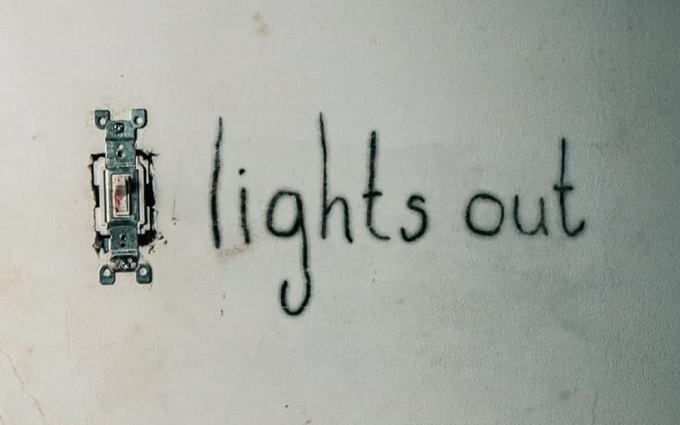Lights Out Review

The Plot
When her little brother, Martin (Gabriel Bateman) experiences the same events that once tested her sanity, Rebecca (Teresa Palmer) works to unlock the truth behind the terror, which brings her face to face with an entity that has an attachment to their mother, Sophie (Maria Bello).
The Good
Based on the short film of the same name, Lights Out expands the terrifying idea of an entity which can only be seen in the shadows when the lights are out and brings with it an often touching plot which explores themes of depression. David F Sandberg gives a technically brilliant piece of filmmaking in this, his feature length debut which uses its lighting in an impressive and terrifying way. Whenever the lights are off, you will undoubtedly find yourself searching, Where’s Wally style for any ominous shadow that could potentially be lurking in the background.
Perhaps the best use of this comes in Rebecca’s room which is has a flashing neon Tattoo parlor sign constantly flicking on and off bathing the room in blood red between brilliantly effective cuts of the shadowy adversary scratching on the floor menacingly. The plot, which centres around Rebecca and Martin as the latter starts to experience a spine-tingling home environment trapped alone with his mother and her apparent friend lurking in the shadows, is heightened by the wonderful performances from the two leads who have a truly believable chemistry as brother and sister. The idea of Martin’s problems at home echoing that of Rebecca’s childhood is put to work in a brilliantly effective flashback showing a young Rebecca’s experience. With Martin not having yet given up on his mother and determined to help her unlike Rebecca who has not kept in contact since moving out is a juxtaposition that works well and advances and adapts as the story moves forwards in a realistic way.
The Bad
It’s a shame then, to see that the film relies far too heavily on jump scares in order to amp up the horror. This wouldn’t be much of a problem were it not for the jarring use of music in order to make the jumps bigger. Fortunately the method appears to die down a bit in it’s latter half but the damage is already done. It’s especially disappointing because the concept works incredibly well and could have been just as effective, if not more so without the soundtrack added in.
The Ugly Truth
A brilliant concept and interesting storyline, with some effective use of the theme of depression is lessened ever so slightly by it’s adamant use of jump scares in such a typical way. Lights Out is still effective throughout but tends to work best through its use of lighting rather than its soundtrack.
Review by Johnny Ellis